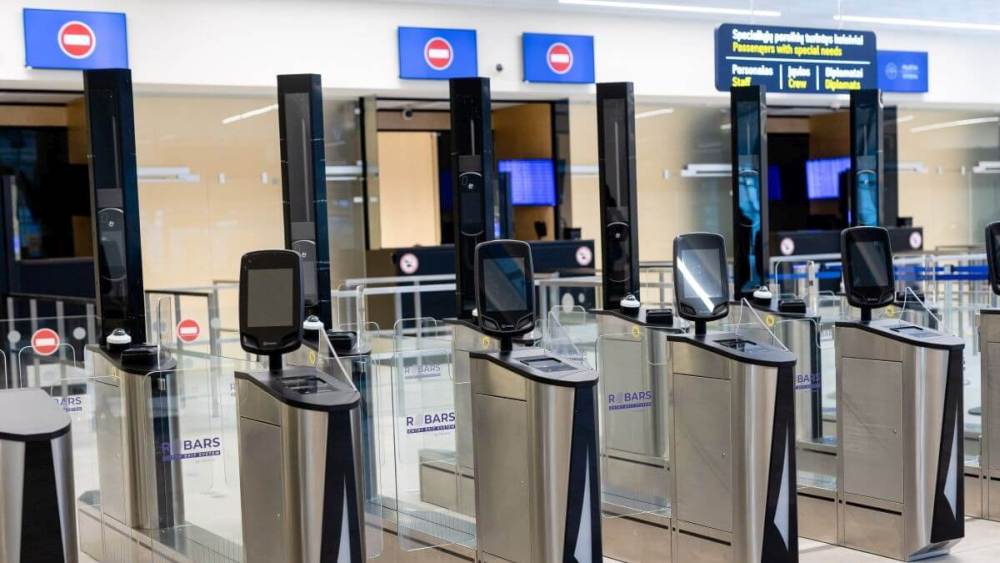Is Spain Changing the 90-Day Rule?
Since Brexit, many UK citizens who have residences in Spain have been unable to stay in Spain longer than 90 days in 180 days due to the Schengen Law. Recently, Spain has tried to scrap the 90-day limit for UK visitors. There has been a lot of speculation about this as France attempted to amend the immigration bill recently to allow UK citizens with a second home in France to stay longer than 90 days without a visa. A French court rejected this for being ‘unconstitutional’. There still seems to be a lot of uncertainty surrounding the 90/180 rule, and we will try to clarify this in this article.
What is the Schengen 90-Day Rule?
The Schengen 90-day rule regulates the duration of stay for non-EU/EEA (European Economic Activity) citizens travelling within the Schengen Area. According to this rule, travellers from visa-exempt countries can stay within the Schengen Area for a maximum of 90 days within a 180-day period.
This means that once an individual enters the Schengen area, a 180-day countdown begins, during which they can spend a total of 90 days within the region. After exceeding this limit, they must leave the Schengen Area and wait until the 180-day period resets before re-entering.
How Does the 90 Days Out of a 180 Work in Spain?
As a member of the Schengen Area, Spain adheres to the 90-day rule for travellers entering its territory. The same regulations apply when visitors arrive by air, land, or sea. When entering Spain or any other Schengen country, travellers are subject to border control procedures, where immigration officers ask for relevant travel documents, such as a passport.
Most passports are stamped at customs, even if the person has residency and shows a TIE card. This allows them to check how long an individual has been in the country or Schengen Area. This puts an end to those trying to travel through France to beat the 90-day rule in Spain.

What Happens if I Overstay the 90 Days?
Overstaying the 90-day limit in Spain or other Schengen countries can potentially have serious consequences. It’s illegal to overstay the 90-day limit or even to travel to another Schengen country in the same 180-day period visa-free. If you travel without a visa and overstay, some Schengen countries may just ask you to leave, whereas others could impose:
Fines – Fines of between €500 and €10,000 can be applied for overstaying. This can be issued in conjunction with an entry ban. We personally haven’t heard of anyone being fined for overstaying in Spain, have you? If you know someone this has happened to, please leave a comment below (anonymously, of course).
Entry bans – Staying in Spain for more than 90 days could lead you to be banned from re-entering the country for up to 3 years. Again, we haven’t heard of this happening yet. Comment below if you have.
Deportation – usually only applies if you’re working or claiming benefits in Spain without a valid visa. You will be given a short leave period before being officially deported. Again, comment below if anything.
Jail sentence – Overstaying your welcome in Spain could lead to a 6-12 month prison sentence.
Some have incorrectly thought these rules don’t apply to them if they own a property in Spain. Unfortunately, this doesn’t change anything, and the 90-day rule still applies.
Will They Know if I Overstay the 90 Days?
Spanish customs officials stamp passports on entry to keep tabs on how long visitors have been in the country. Like most bureaucratic things in Spain, they don’t seem too strict about monitoring this. However, Spain is completing its Entry/Exit System (EES) biometric terminals. 1,500 Automated Border Control eGates (ABC eGates) will be installed at all border-crossing points. This is expected to start on October 6th 2024.
This system will likely take fingerprints and facial images of non-EU citizens entering a Schengen area. Non-EU citizens who are legally resident or have long-stay visas to live in an EU Member State will be exempt from EES.

Here’s a handy 90/180-day rule calculator
Schengen 90-Day Calculator
You can use this Schengen calculator to see whether you will overstay in the Schengen Area and plan your future trips.
Exceptions and Extensions to the 90-Day Rule
Certain exceptions and extensions to the Schengen 90-day rule exist under specific circumstances. For example:
- Long-term visas or residence permits: If you hold a long-term visa or residency permit issued in Spain, you are exempt from the 90-day rule in Spain. However, you may still need to stick to certain conditions regarding travel to other Schengen states.
- Transit: Days spent in the Schengen area while in transit (e.g. Layovers at airports) do not count toward the 90-day limit, provided the traveller stays within the international transit zone.
- Special Agreements: Some countries have bilateral agreements with Schengen Area nations that allow for extended stays or different visa requirements. It would be best if you verified such agreements before planning your trip.
Spanish Visas
If you want to stay in Spain longer than 90 days, you may be able to apply for one of the following visas:
- Work Visa – If you have found employment in Spain, you may be able to apply for a work visa. It is valid for up to 3 years and can be extended after this period. After five years, you can apply for permanent residency. Spain generally issues these types of visas to highly qualified professionals for jobs with an occupation shortage. You cannot apply for this work visa while in Spain; you must apply from a consulate or embassy in your country.
- Non-Lucrative Visa – This only applies to individuals who plan to live in Spain without carrying out any work or professional activity for a Spanish company or employer. You need to show proof of sufficient funds to support yourself. (Currently about €30,000).
- Golden Visa – This visa applies if you buy real estate worth €500,000 or more (can be one or several properties). Buy shares from a Spanish company or have a bank deposit of over €1,000,000. Or invest in a Spanish business project or Spanish public debt worth more than €2,000,000. Due to be stopped in 2025.
- Digital Nomad Visa – This relatively new visa allows non-EEA nationals to work remotely in Spain if employed by a non-Spanish company. It grants temporary residency rights to the employed if they meet Spain’s minimum monthly income requirement.
This is a simplified overview as the Spanish visa process is complex. Contact us for help with visa applications in Malaga.

